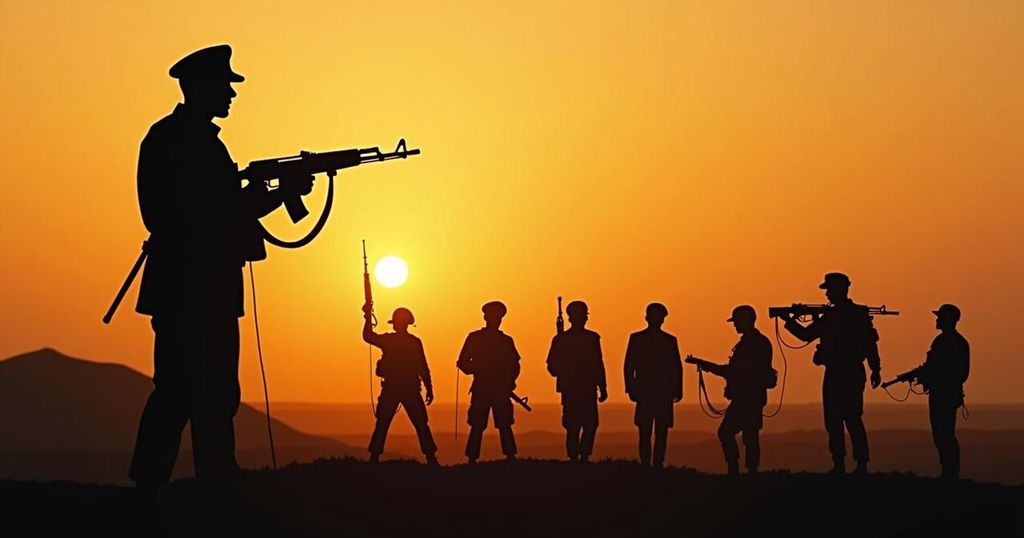Sudan Army Chief Criticizes Foreign Support for Paramilitary Forces at UN
Sudanese army chief General Abdel Fattah al-Burhan has criticized foreign support for the paramilitary Rapid Support Forces (RSF) during a speech at the UN General Assembly, implicitly targeting the UAE. As the SAF conducts a significant military offensive to retake Khartoum, Burhan condemned the RSF for human rights violations and blamed external forces for prolonging the conflict, which has caused a severe humanitarian crisis in Sudan.
In a pointed address at the United Nations General Assembly, General Abdel Fattah al-Burhan, the leader of Sudan’s army, has criticized what he described as “regional and political players” providing support to the paramilitary Rapid Support Forces (RSF). His reprimand is widely interpreted as a veiled reference to the United Arab Emirates (UAE), known for its backing of the RSF, which has been engaged in an ongoing conflict with the Sudanese Armed Forces (SAF) since April of the previous year. Burhan stated that the RSF is benefitting from significant local and regional assistance, allowing the conflict to persist longer than it otherwise would. During his UN address, Burhan attributed the duration of the current conflict to this foreign intervention, asserting that without it, the situation would have reached a resolution. Notably, the Sudanese army has previously provided evidence to the UN suggesting that the UAE has been involved in supporting the RSF, including the alleged deployment of Emirati military personnel. Continuing the momentum of military operations, the Sudanese army has initiated a major offensive aimed at regaining control of Khartoum, encountering robust resistance from RSF combatants. This operation marks the largest military engagement since the hostilities erupted, highlighting the intense and violent state of the current conflict. Reports indicate that the RSF is under substantial pressure in several regions, including el-Fasher, where a humanitarian crisis is unfolding, prompting fears of famine among the afflicted civilians. Despite the dire circumstances, General Burhan has played down the situation, referring to it as a “food gap” rather than a famine. On a broader scale, Burhan categorizes the RSF as a terrorist organization, accusing their leadership, particularly Mohamed Hamdan Dagalo and his family, of serious violations of both domestic and international laws, including allegations of ethnic cleansing and kidnappings.
The ongoing conflict in Sudan, primarily between the Sudanese Armed Forces (SAF) and the Rapid Support Forces (RSF), has roots in power struggles following the ousting of former President Omar al-Bashir in 2019. The RSF, evolved from the infamous Janjaweed militias, has been implicated in numerous human rights violations, including ethnic cleansing in Darfur. The conflict has led to a humanitarian crisis, with millions displaced and in urgent need of assistance. Amidst these dynamics, claims of foreign intervention, particularly from nations such as the UAE, complicate the conflict, reflecting broader geopolitical interests in the region that resonate deeply within Sudan’s domestic strife.
General Abdel Fattah al-Burhan’s remarks at the UN underscore the complex interplay of local conflict and international involvement in Sudan’s ongoing crisis. His criticisms of the UAE and other regional influencers reveal a struggle for sovereignty and control amidst the chaos. The military operations to reclaim Khartoum denote a pivotal moment in the conflict, yet the humanitarian toll and allegations of atrocities committed by the RSF pose ongoing challenges. Ultimately, the situation remains fluid, with the need for both immediate and long-term resolutions critical for the region’s future stability.
Original Source: www.middleeasteye.net




Post Comment